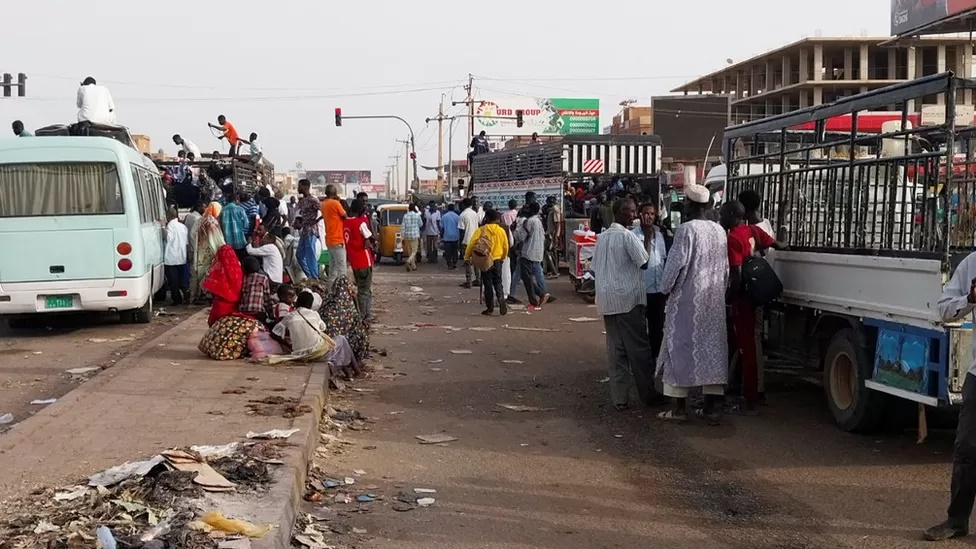

Fighting is continuing in parts of Sudan despite a 72-hour ceasefire largely holding.
Speaking via phone from Omdurman, the city adjoining the capital Khartoum, the BBC’s Mohamed Osman says fighting broke out near TV and radio buildings.
Reports say there is no fuel and a lack of doctors, and people are struggling to access food and money.
Sudan’s army chief has reportedly approved extending the ceasefire due to expire on Friday for 72 hours.
General Abdel Fattah al-Burhan gave initial approval to the proposal from the regional African bloc Intergovernmental Authority on Development, Reuters news agency reports.
The proposal suggests sending envoys from the Sudanese army and rival group Rapid Support Forces (RSF) to Juba in South Sudan to discuss the details.
The current ceasefire began at midnight local time (22:00 GMT) on Monday bringing a pause to a conflict which erupted on 15 April amid a power struggle between the leaders of the army and the RSF.
People in Khartoum and Omdurman are finding it difficult to find clean water and food and access to cash, our correspondent says.
Explosions and gunfire could still be heard on Wednesday, with warplanes in the air, although it was quieter than before the ceasefire and the situation was good enough for evacuations to continue.
Our correspondent says he and his family find it difficult to sleep because of the explosions and shooting.
Gangs have also been looting homes and empty buildings, targeting cars and vehicles, he adds. Local people fear what will happen after the ceasefire ends.
Both sides still man checkpoints but these are fewer in number as some troops have withdrawn to other areas.
The warring factions both claim to control important places like airports and army headquarters. There is no internet access and phone lines are poor.
At least 459 people have been killed since the fighting broke out though the actual number is thought to be much higher.
Earlier, the World Health Organization said it expected “many more” deaths due to disease, a lack of access to food and water and disruption to health facilities.
BBC / Titilayo Kupoliyi
Subscribe to our Telegram and YouTube Channels also join our Whatsapp Update Group